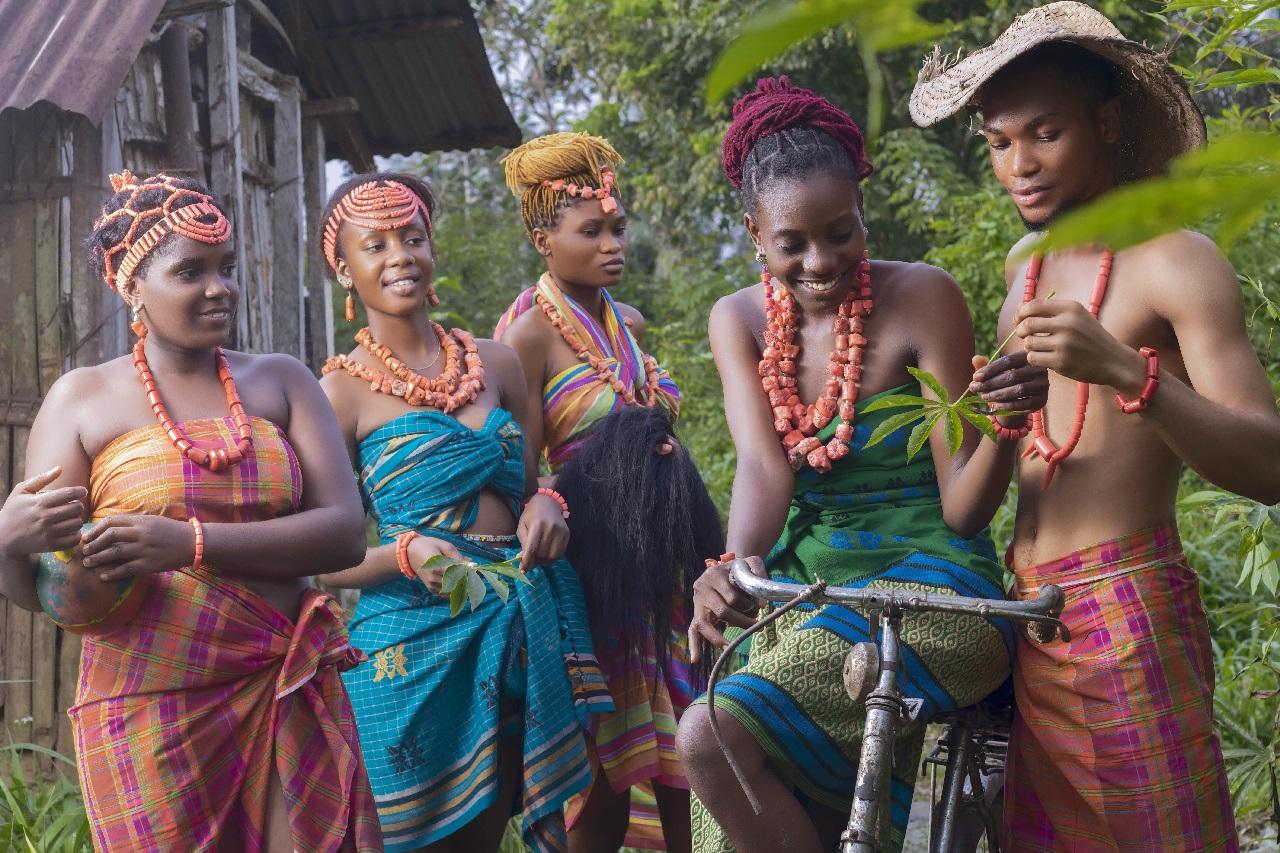The Igbo people, a vibrant and diverse community in Nigeria, are known for their rich culture and traditions. Geographically, they are situated in the South-Eastern part of Nigeria, spanning across states such as Abia, Anambra, Ebonyi, Enugu, Imo, Delta, and Rivers. In these regions, the Igbo language is predominant, although Nigerian English, the national language, is also spoken.
Geographical and Cultural Diversity
Prominent towns and cities in Igboland include Awka, Aba, Owerri, Enugu (often considered the ‘Igbo capital’), Onitsha, Abakaliki, Afikpo, Agbor, Mbano, Mbaise, Nsukka, Orlu, Okigwe, Umuahia, Asaba, and Port Harcourt, among others. The Igbo diaspora extends beyond Nigeria, with a significant number of Igbo people residing in places like Jamaica, Cuba, Haiti, Barbados, the United States, Belize, and Trinidad and Tobago, among others.
For instance, the word “Bim,” a colloquial term for Barbados, has its roots in the Igbo language, specifically “bi mu” (or “bem”), which means “My people” (“Ndi bem,” “Nwanyi ibem,” or “Nwoke ibem”). In Belize City, a section was named “Eboe Town” after its Igbo inhabitants. In the United States, the Igbo community can be found in states such as Maryland, Virginia, North Carolina, and Alabama, where they remained the largest single group of Africans after the slave trade.
Demographics and Governance
South-Eastern Nigeria, primarily inhabited by the Igbo people, is one of the most densely populated regions in Nigeria and possibly all of Africa. Politically, the Igbo people are characterized by fragmentation and diversity. Geographic differences have led to various subgroups, delineated based on umunna (extended families), clans, lineages, and village affiliations.
Unlike some other Nigerian ethnic groups, the Igbo lack centralized chieftaincy systems, hereditary aristocracies, or kingship customs. Instead, leadership responsibilities fall upon village councils, which include lineage heads, elders, titled men, and individuals who have earned leadership positions through wisdom, philanthropy, and contributions to the community. At the highest echelons of leadership are Igwes, Obis, or Ezeuzus, along with their cabinet chiefs, depending on the region.
Historical Interaction with Western Civilization
The Igbo people had their first significant contact with Europe in the mid-fifteenth century when the Portuguese arrived on the scene. This contact marked the beginning of a trade-focused relationship between African and European traders. Initially, trade centered around goods, including Igbo slaves. However, with the abolition of the slave trade in 1807, the focus shifted to industries such as palm products, timber, elephant tusks, and spices.
The British, combining trade with imperialism, saw potential in the productive Igbo hinterland and expanded their influence. In 1900, the British Niger Company-administered area became the Protectorate of Southern Nigeria, incorporating the Niger Coast Protectorate. Consequently, the British presence in Igboland became more pronounced.
Between 1900 and 1914, during the amalgamation of Northern and Southern Nigeria, Igboland experienced twenty-one British military expeditions. This marked the beginning of Igbo subjugation as they became subject to British rule. In 1928, Igbo men were subjected to taxation for the first time in their history, signaling a significant shift in their status. This led to the 1929 Aba Riots, a massive revolt by Igbo women, unprecedented in Igbo history.
In conclusion, the culture and tradition of the Igbo people are a testament to their resilience, diversity, and historical significance. Their language, customs, and the impact of external influences, such as European colonization, have shaped the vibrant tapestry of Igbo culture. Understanding their rich heritage is vital for appreciating the depth and complexity of Nigeria’s cultural mosaic.

